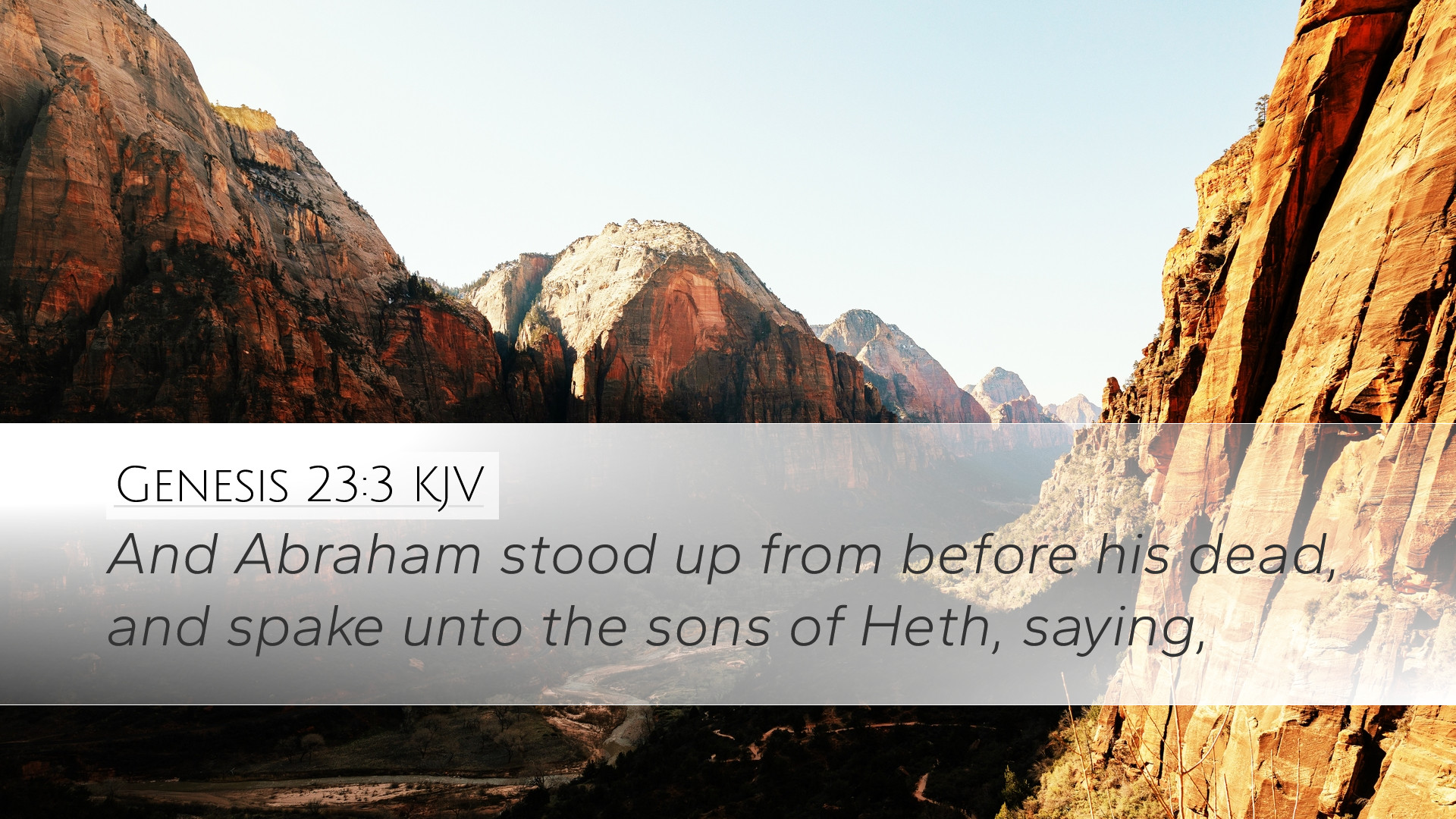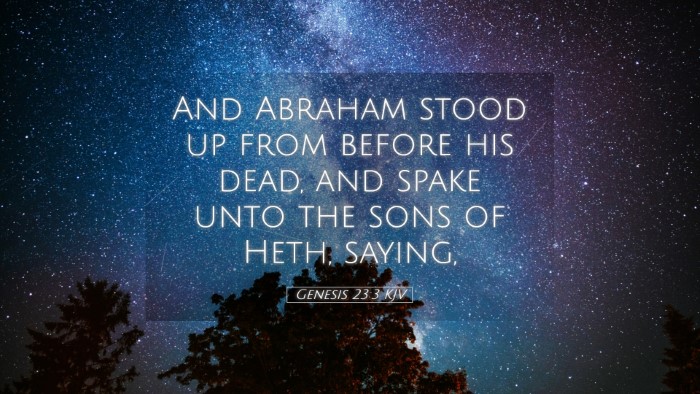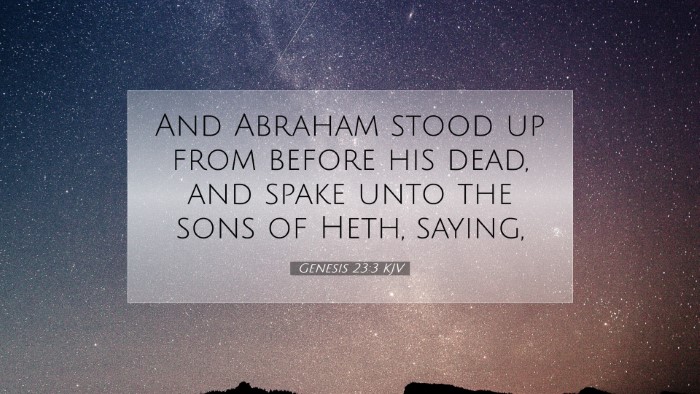Commentary on Genesis 23:3
Genesis 23:3 states, "And Abraham stood up from before his dead, and spake unto the sons of Heth, saying," This verse holds significant meaning in the narrative of Abraham and lays the groundwork for understanding his later actions and the cultural context of the time.
Context of Genesis 23
The chapter centers on the death of Sarah, Abraham's wife, and Abraham's interaction with the Hittites regarding the purchase of a burial site. This reflects not only the grief of Abraham but also his position as a foreigner seeking a permanent resting place for his beloved wife, a profound act given the nomadic lifestyle he led.
Insights from Public Domain Commentaries
Matthew Henry's Commentary
Matthew Henry indicates the significance of where Abraham stood in his grief. This posture of standing represents not only a moment of dignified mourning but emphasizes his role as a leader within his family and community. He did not merely lament but immediately took practical steps to ensure that Sarah was honored appropriately through a proper burial. This duality of mourning and action exemplifies a faith-driven life where grief is coupled with responsibility.
Albert Barnes' Notes on the Bible
Albert Barnes elaborates on the cultural context of Abraham's negotiation with the sons of Heth. He points out how Abraham, though wealthy and influential, approached the Hittites with humility. This is illustrated in his request, revealing Abraham’s respect for local customs and the importance of gaining permission in a land that was not originally his. This act underscores the importance of integrity and diplomacy, modeling how believers ought to conduct themselves in dealings with those outside the covenant community.
Adam Clarke's Commentary
Adam Clarke emphasizes the emotional weight of this moment for Abraham, noting that “he stood up from before his dead.” Clarke interprets this as a transition from personal grief into a community-focused activity. Abraham's mourning was not only for the immediate moment but propelled him into action regarding future generations. Clarke suggests that Abraham’s actions after this mourning indicate a deep trust in God’s promises regarding the land, and therefore, the acquisition of a burial place symbolized more than just a location; it was an act of faith in God's covenant with his descendants.
Lessons and Applications
-
Mourning with Purpose: The narrative illustrates that grief is a natural human emotion but should not lead to inaction. Abraham's ability to navigate his sorrow while pursuing the practical need for a burial site shows a balanced approach between emotional and practical aspects of life.
-
Respect and Integrity in Relationships: Abraham’s engagements with the Hittites serve as a reminder for believers today to approach interactions with non-believers or those from different cultural backgrounds with respect and integrity.
-
Faith in the Face of Grief: Abraham’s actions post-mourning reflect a deep-seated faith in God’s promises. The choice to purchase a plot of land for Sarah signals hope for the future, reminding us that beyond grief, there lies a promise of resurrection and renewed life.
Conclusion
Genesis 23:3 serves as a profound piece of Scripture that speaks to the depth of human emotion and the correlating actions of faith and leadership. By combining insights from commentaries by Matthew Henry, Albert Barnes, and Adam Clarke, a richer understanding emerges, encouraging pastors, students, and theologians to reflect on how they engage with both grief and community in their lives and ministries. This verse encourages a faithful response to loss, emphasizes the importance of respectful engagement with others, and inspires trust in the divine promises that guide our future.


